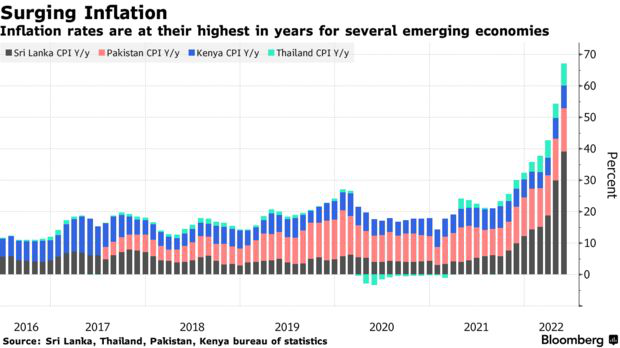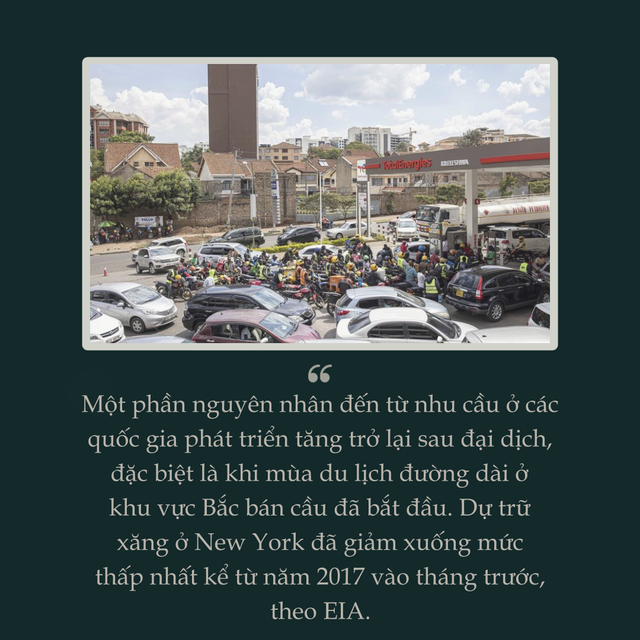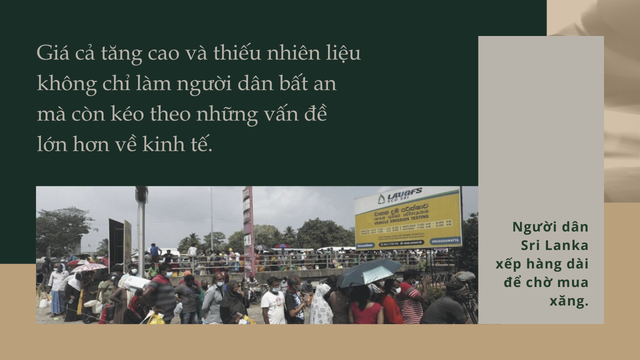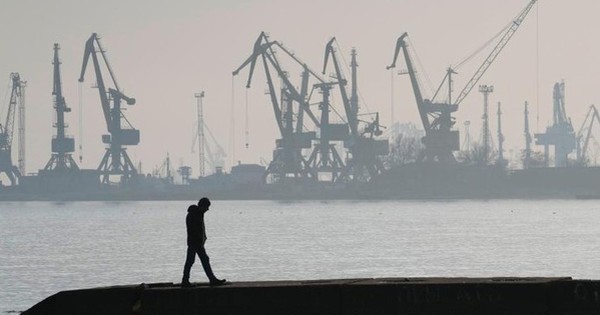
Higher fuel prices are adding to the strain on inflation, for countries already struggling with rising food prices. These factors are causing the unrest and making many people unhappy. This is something that democratic governments are well aware of that will cost them support and power.
Sri Lanka, Nigeria and Argentina are emerging economies in Asia, Africa and Latin America that have seen long queues at some gas stations in recent weeks due to fuel shortages.
Many governments are faced with the dilemma of fending off rising prices by increasing subsidies or lowering taxes, or letting fuel prices rise and make consumers and businesses unable to afford it. ability to pay.
“We could see a lot of uncertainty as emerging economies become more sensitive to fuel prices,” said Virendra Chauhan, president of Singapore-based consultancy Energy Aspects. these countries all use fuel subsidies to support their people, but due to increasing import pressure, it is difficult for them to maintain those subsidies.”
This crisis is mainly a consequence of the need to recover from the pandemic and the sanctions imposed by the West on Russia. Price oil Crude traded at nearly $120 a barrel on June 6, about 70% higher than the average in 2021. The rally came after Saudi Arabia signaled demand would increase and Goldman Sachs predicted. The market will shrink even more when China stops its blockade measures.

Sri Lanka and Pakistan are also emerging economies bearing the brunt of rising prices.
Already facing many difficulties after falling into the economic crisis, Sri Lanka is trying to seek help from the IMF, China, Japan and India to pay for fuel imports because the domestic supply has been exhausted. exhausted. Airlines flying to the country are required to carry enough fuel for the round trip or refuel elsewhere.
Inflation and high fuel prices have pushed Pakistan into a similar economic crisis, and they are also calling for a bailout from the IMF. But the organization insists Islamabad has raised fuel prices to seek a bailout deal. Meanwhile, foreign banks have stopped providing commercial credit for the country’s imported oil.

Inflation rates in some emerging countries.
In Southeast Asia, Myanmar people also face shortages of gasoline and diesel, according to local media. In Myanmar, limited access to the US dollar has prevented buyers from paying for imports.
Meanwhile, Africa is also particularly severely affected. Kenya, Senegal, South Africa and Nigeria have all reported fuel shortages. Airlines operating in some parts of the continent have had to cancel flights or refuel planes elsewhere.
Part of the reason is that demand in developed countries has increased again after the pandemic, especially when the long-distance travel season in the Northern Hemisphere has begun. Gasoline stocks in the New York area fell to their lowest level since 2017 last month, according to the EIA.
In Europe, the bloc is buying massive amounts of jet fuel to fuel this summer’s boom in tourism demand. In addition, they also import diesel to replace the supply from Russia.

“Europe is a region in great demand. Emerging markets will therefore be difficult to compete,” said Chauhan.
The spike in demand is not directly proportional to refining capacity. During the pandemic, when demand has fallen, activity at refineries in countries such as the Philippines, Australia, New Zealand and Singapore has also declined and inventories have fallen. Now, refineries are scrambling to increase their inventories.
Many countries face the problem that they do not know where to source crude oil. As rich countries are looking to buy from traditional sources like the Middle East, some developing countries are buying cheap Russian oil. Sri Lanka is working to restart its sole refinery with using oil imported from Russia, as the government tries to control the black market is driving prices up.

“The low price of Russian oil is attractive to emerging markets,” said Peter Lee, senior oil and gas analyst at Fitch Solutions.
Last month, India and China imported Russian oil in record volumes.
For some poorer countries, the impact of high oil prices has sent them into a “recession spiral”. Rising imported fuel prices have hurt the economy, weakening the local currency which in turn makes imported oil even more expensive.
The Sri Lankan rupee is down nearly 44% this year against the dollar, while the Pakistani rupee is down more than 11%.
As a result, voters are increasingly frustrated with the government. In response, some governments are increasing subsidies or reducing fuel taxes, often affecting state budgets.
According to estimates by Bloomberg Economics, Mexico’s gasoline and diesel subsidies are costing the government more than double the profits it made from rising crude prices. South Africa is one of the countries to temporarily reduce fuel taxes. Even so, drivers here still have to see fuel prices increase by nearly 80% since the lows in 2020.

Indonesia last month announced that the government would increase spending by about $27 billion this year, partly to pay for a 56% increase in fuel prices. In Pakistan, former Prime Minister Imran Khan was forced to resign in April after lowering fuel prices and “freezing” them for four months, costing the government $600 million a month and affecting affect the IMF bailout.
Rising prices and lack of fuel not only unsettle people, but also lead to bigger economic problems. Farmers who can’t afford diesel won’t be able to grow many crops, further worsening food shortages and inflation. When governments accept to keep fuel taxes low, spending on other sectors of the economy will have to decrease and borrow more amid rising interest rates.
Chauhan said: “What the world is gradually realizing after the pandemic is the need to ensure its own energy supply. It further emphasizes the impact of the transition from a supply chain to more fossil fuels. jelly to green energy.”
Refer to Bloomberg
at Blogtuan.info – Source: Soha.vn – Read the original article here


